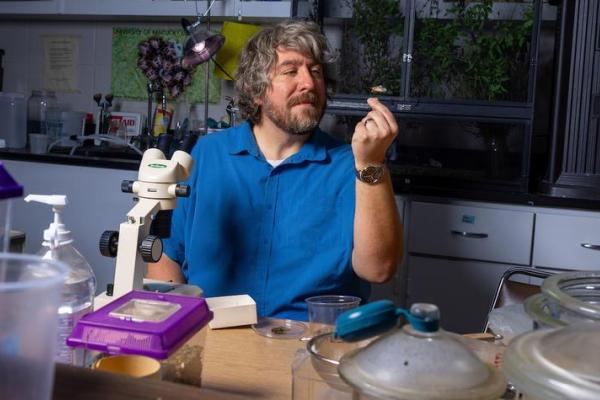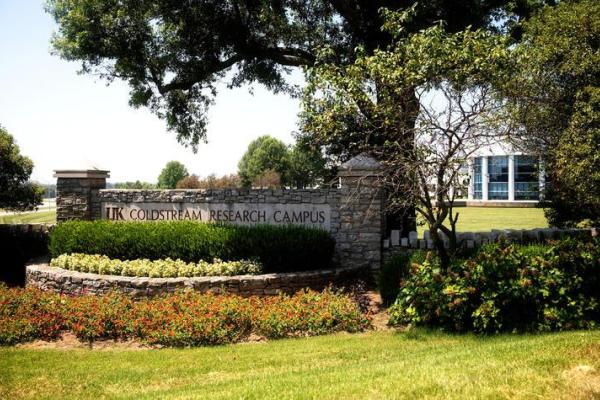The NIH Institutional Development Award (IDeA): A Program of Impact
Recently, we celebrated a new grant from the National Institutes of Health (NIH), within a program called the Institutional Development Award (IDeA), for a Center for Cancer and Metabolism. This Center of Biomedical Research Excellence (COBRE), which is headed by Daret St. Clair in collaboration with Peter Zhou, is anticipated to have an amazing impact on our ability to fight the cancer scourge that plagues Kentucky.
So what exactly is the NIH IDeA program, what is a COBRE (no, it’s not a snake), and why would these programs have such an impact on cancer research at UK?
Let’s start with the NIH IDeA program. This program is intended to broaden the geographic distribution of NIH funding for biomedical research across the U.S. Let’s put this into perspective. Major research universities, located in heavily populated regions of the U.S., have traditionally had outstanding research programs led by leaders in their respective fields that then compete well for NIH funding. The IDeA program enhances the competitiveness of investigators at institutions located in states in which the aggregate success rate for applications to NIH has historically been low. It does so by supporting faculty development and improving the research infrastructure at these institutions, through programs like the newly awarded COBRE on cancer and metabolism. The program also serves unique populations—such as rural and medically underserved communities—in 23 states, including Kentucky, and Puerto Rico.
COBREs support thematic, multidisciplinary centers that augment and strengthen institutional biomedical research capacity. What does “research capacity” mean? Research talent—the individual investigators who conduct research projects—and research infrastructure, which includes core facilities that allow researchers across campus to conduct leading-edge projects.
Each COBRE is headed by a Program Director who has been a leader in the field. The grant supports three to five individual research projects—each supervised by a single junior investigator—that stand alone but share a common thematic scientific focus. What is different about the COBRE mechanism is that these junior investigators are paired with experienced mentors, who help them transition to competitive grant support from the NIH or other agencies. COBREs are an outstanding recruiting tool to bring new talent to the institution, as they assure these future research stars that they will have help along the way to improve their ability to compete for and perform high-impact biomedical research.
Since 2001, UK has received $87 million in COBRE funding for the following four centers:
- Center of Biomedical Research Excellence in Women’s Health (led by Tom Curry and Phyllis Wise, College of Medicine)
- Center for the Biologic Basis of Oral/Systemic Diseases (led by Jeffery Ebersole, College of Dentistry)
- Center of Biomedical Research Excellence in the Molecular Basis of Human Disease (led by Louis Hersh, College of Medicine)
- Center of Research in Obesity and Cardiovascular Disease (led by Lisa Cassis, College of Medicine)
Having served for eight years as the Program Director of the Center of Research in Obesity and Cardiovascular Disease, I have experienced firsthand the immense impact of this program. Since 2008, our NIH-funded COBRE has mentored over 40 junior investigators who have successfully competed for more than $50 million in extramural grant support to determine why obesity causes so many cardiovascular diseases.
Last week, along with U.S. Senate Majority Leader Mitch McConnell and Congressman Andy Barr, we announced the new COBRE Center for Cancer and Metabolism at UK. We were happy to share the announcement of this program with members from our congressional delegation, whom have provided consistent and instrumental support for this program and for NIH research. This $11.2 million, five-year new NIH COBRE will focus on changes in metabolism of cancer cells as an avenue to impact the development, progression and treatment of cancer. We applaud the NIH for fostering the IDeA program, and we will do everything we can to assure that this biomedical research support makes a difference in the lives of our citizens.
More from this series Research Support
Credits
Lisa Cassis, Vice President for Research



